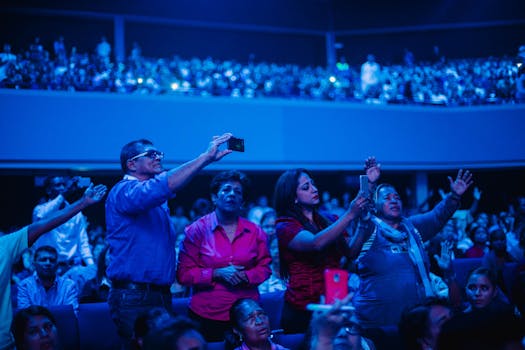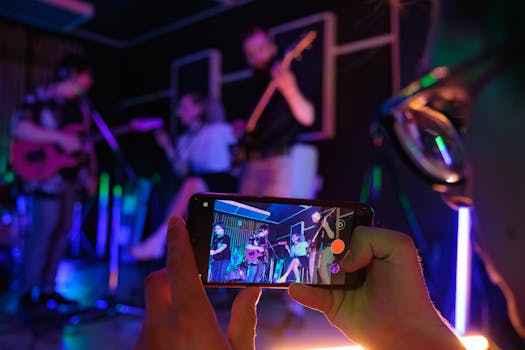The digital revolution has dramatically transformed many aspects of our lives, and music is no exception. Artists now harness digital tools to create, distribute, and promote their work in innovative ways.
From composition software to online streaming platforms, the breadth of digital options allows musicians to reach audiences farther and faster than ever before. This change has democratized the music industry, giving rise to previously unheard voices.
Moreover, listeners have benefitted from greater access to diverse music selections, challenging traditional industry gatekeepers. This article explores the multifaceted impact of digital tools on music, looking closely at each significant area.
Digital Creation Tools
Advances in technology have revolutionized how music is composed and produced. Digital audio workstations (DAWs) like Ableton Live and Logic Pro offer musicians an array of features.
These platforms help streamline the music production process by integrating various elements into one cohesive workspace. Musicians can now manipulate sound recordings, apply effects, and edit tracks with ease.
Additionally, virtual instruments have expanded creative possibilities without the need for physical equipment. Artists can simulate entire orchestras using software, which is often more affordable than traditional instruments.
Furthermore, collaboration has become more efficient through cloud-based services. Musicians can share projects in real time, inviting input from collaborators across the globe.
Ultimately, the accessibility of digital creation tools encourages experimentation, enabling artists to push creative boundaries and redefine their musical styles.
Distribution Channels
Digital distribution channels have contributed substantially to the accessibility of music today. Platforms like Spotify, Apple Music, and SoundCloud allow artists to share their work globally.
This easy access lowers barriers musicians once faced when trying to reach audiences. Emerging artists can showcase their talent without the need for a traditional record deal.
Moreover, independent musicians have seen a surge in opportunities due to these digital channels. They can connect directly with fans, often leading to more meaningful interactions.
Streaming services offer data analytics tools, providing insights into listener behavior. Artists can use this information to tailor their marketing strategies and enhance fan engagement.
Thus, the landscape of music distribution has shifted dramatically, enabling artists to build their careers on their terms.
Promotion and Marketing
Digital tools have changed the way music is marketed and promoted. Social media platforms like Instagram, TikTok, and Twitter serve as powerful marketing tools for artists.
These platforms facilitate direct communication with fans, allowing artists to showcase their personalities and build relationships. Engaging content can go viral, leading to a rapid increase in exposure.
Moreover, targeted advertising on social media helps artists reach their ideal audience, maximizing their promotional efforts. This targeted approach is more effective than traditional advertising methods.
Furthermore, online music videos have become essential for promotions. Platforms like YouTube have become top destinations for music discovery, often driving traffic to streaming sites.
The interplay between digital marketing and music has created a vibrant ecosystem that allows artists to thrive through interactive engagement with their audiences.
Impact on Music Genres
The accessibility of digital tools has influenced the emergence and evolution of various music genres. Genres like electronic dance music (EDM) and hip-hop heavily rely on digital production techniques.
Producers can combine influences from multiple genres, creating unique sounds that resonate with diverse audiences. This genre-blending allows for endless experimentation and innovation.
Moreover, micro-genres have emerged as a result of digital sharing. Artists can cater to niche audiences, often creating dedicated fan bases around these sub-genres.
Additionally, technology has facilitated the revival of traditional genres with modern twists. Musicians incorporate elements of blues, jazz, and folk into contemporary tracks, representing a rich tapestry of sounds.
In conclusion, digital tools not only foster new genres but also reinvent existing ones, demonstrating the adaptability and creativity of today’s musicians.
Audience Engagement
Digital tools have fundamentally altered the way audiences interact with music. Fans now play an active role in their musical experiences, shaping trends and supporting artists directly.
Live streaming events and virtual concerts have become popular, especially following recent global circumstances. These events allow audiences to connect with artists from the comfort of their homes.
Building community around music has never been easier, thanks to platforms that facilitate fan interactions. Online forums and social media networks enable discussions between fans and artists.
Moreover, user-generated content, like remixes and covers, enriches the music landscape. Fans often share their interpretations, fostering a culture of collaboration and creativity.
Ultimately, the relationship between artists and their audiences has deepened, creating a sense of shared ownership and collective passion for music.
Emerging Trends and Future Outlook
The future of music in a digital landscape is ripe with possibilities. Emerging technologies like artificial intelligence (AI) are becoming influential in composition and production processes.
AI can analyze vast amounts of data to identify trends, helping artists create music that resonates well with listeners. This capability allows for more targeted creative efforts.
Furthermore, blockchain technology is setting the stage for new forms of music distribution and rights management. This technology promises transparency in royalty payments, ensuring fair compensation for artists.
As music continues to evolve, virtual reality and augmented reality may one day provide immersive experiences, taking concerts to an entirely new level. The line between reality and digital experiences may blur further.
In summary, the future of music is a continuous intersection of creativity and technology, leading to exciting new innovations and trends.
Conclusion
Digital tools have profoundly impacted every facet of the music industry, transforming how songs are created, distributed, and promoted. This transformation has empowered both artists and audiences alike.
The rise of digital creation platforms has enhanced creativity and collaboration, while distribution channels have made music more accessible than ever. Innovative marketing strategies have enabled artists to connect with fans directly.
As genres merge and evolve, audiences play an increasingly active role in shaping musical landscapes. Emerging technologies continue to pave the way for new experiences in music.
In conclusion, the impact of digital tools on music is substantial and ongoing, promising a future rich in innovative possibilities and engaging musical experiences.


